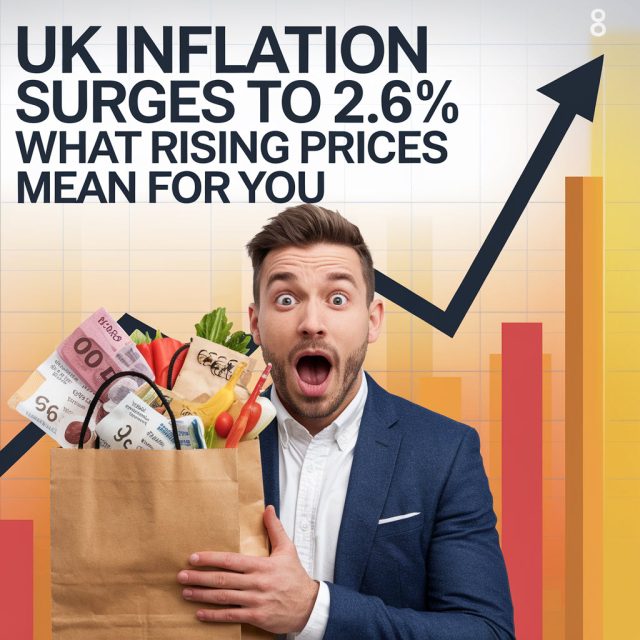(qlmbusinessnews.com . Thurs 19th Dec, 2024) London, UK —
Will UK Inflation Keep Climbing? Latest Insights and Predictions
The UK’s inflation rate has climbed for the second consecutive month, marking the fastest price increases since March. As costs across various sectors rise, households are feeling the impact. But what’s driving this upward trend, and how might it affect the months ahead?
#Inflation on the Rise
The primary measure of inflation, reflecting the annual rate of price increases, now stands at 2.6%, a notable jump from its three-year low of 1.7% in September. Although still far below the peaks of the 2022 cost-of-living crisis, where inflation hit a staggering 11.2%, the upward trend has reignited concerns for consumers.
Why Are Prices Increasing?
The Office for National Statistics attributes the latest inflation spike to rising fuel costs, with petrol and diesel prices playing a significant role. Additionally, tobacco products saw price hikes following tax increases announced in the recent Budget. Other areas such as clothing, footwear, and electronic games have also risen in cost.
Services, including theatre tickets, education, and healthcare, have experienced price increases at a faster rate than goods, while housing costs, particularly rents, surged by 7.8% over the year to November. On the other hand, air travel costs saw their steepest November drop in over two decades.

What’s Next for Prices?
Inflation naturally tends to rise around 2% annually, a rate considered healthy for economic growth. However, projections from the Bank of England suggest inflation could edge higher to 2.75% in the latter half of 2024 before easing.
The Office for Budget Responsibility (OBR) also expects a modest rise, citing Budget policies, including increases in employer national insurance and minimum wages, as contributing factors.
While wages are currently outpacing inflation, providing some relief, housing costs continue to exert significant financial pressure. Even if inflation slows, prices will remain elevated, meaning the cost of living will stay higher than in previous years.
#Impact on Interest Rates
The Bank of England’s Monetary Policy Committee is set to meet this week to discuss interest rates, which are unlikely to drop from their current 4.75%. Higher interest rates help temper inflation by curbing borrowing and spending. Lower rates, conversely, could risk accelerating inflation if borrowing becomes cheaper.
Investors anticipate gradual rate cuts next year, but these are now expected to come at a slower pace than previously forecast.
This News Story is brought to you by QLM Business News, your Digital Media Channel
Visit QLM businessnews.com
For more business news stories also follow us on Facebook, X and Youtube.
To Help qlm business news bring you more new stories like this, please like, share and subscribe.
Unlock unparalleled business growth and effortlessly attract a stream of new customers through QLM Business News Sponsored Advertising. Elevate your brand's presence and captivate your target audience with precision. Visit QLMbusinessnews.com and click on “Advertise” to harness the power of strategic advertising. Don't miss this unparalleled opportunity to propel your business to new heights of success!
Disclaimer: All images presented herein are intended solely for illustrative purposes and may not accurately depict the true likeness of the subjects, objects, or individuals referenced in the accompanying news stories.






















